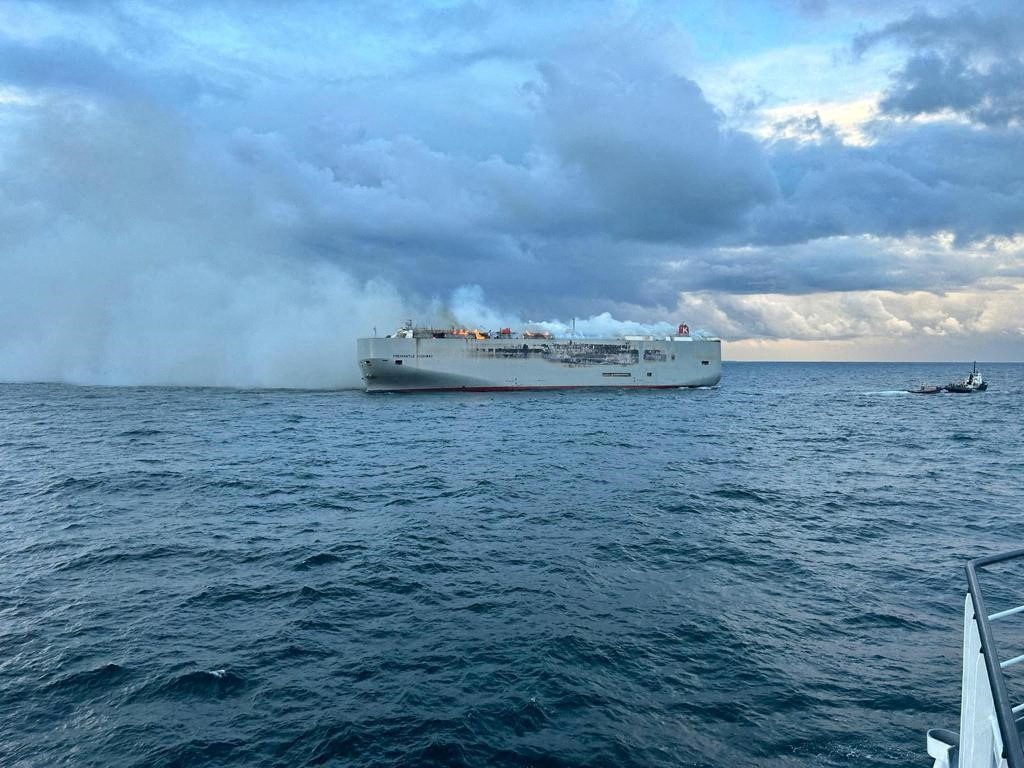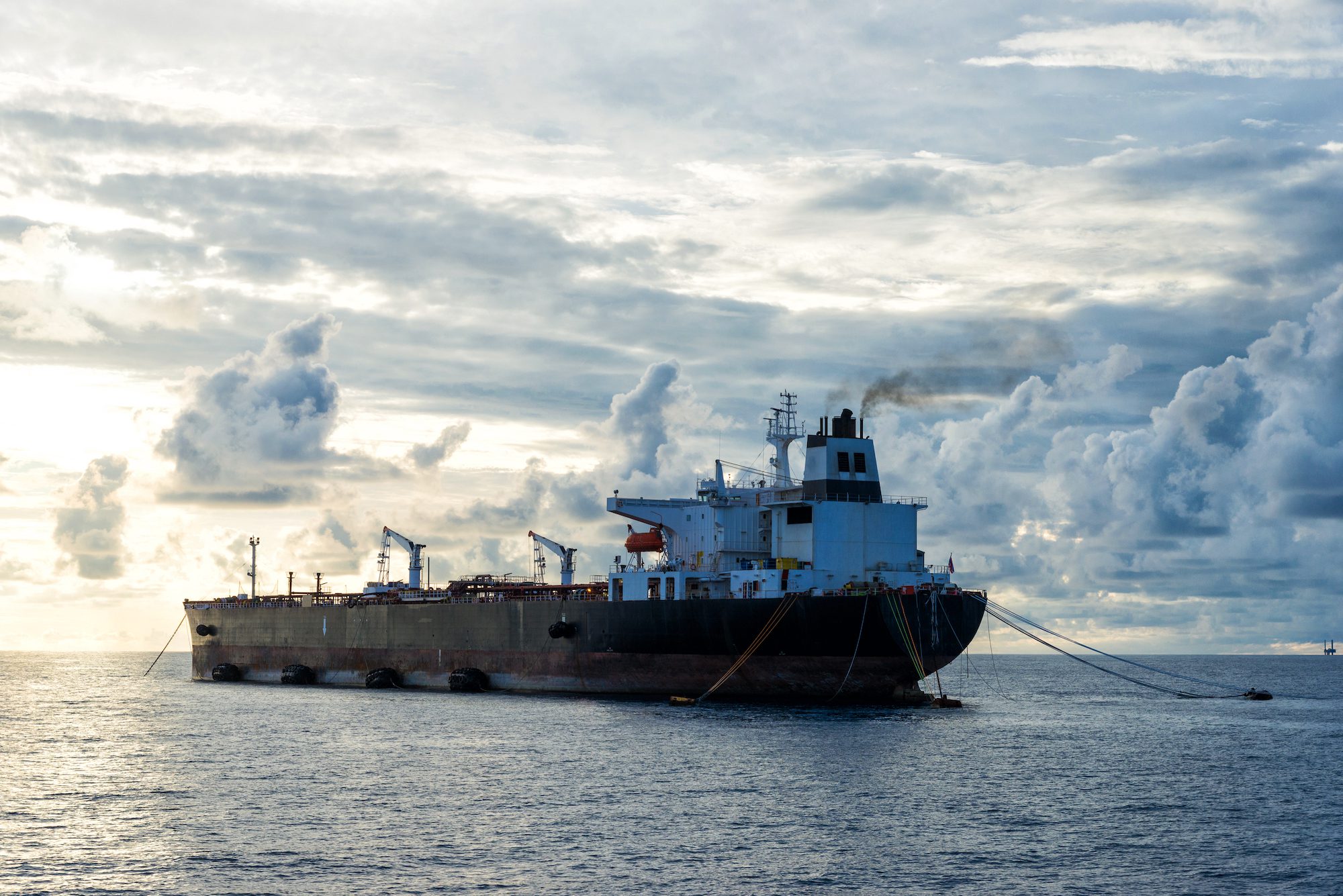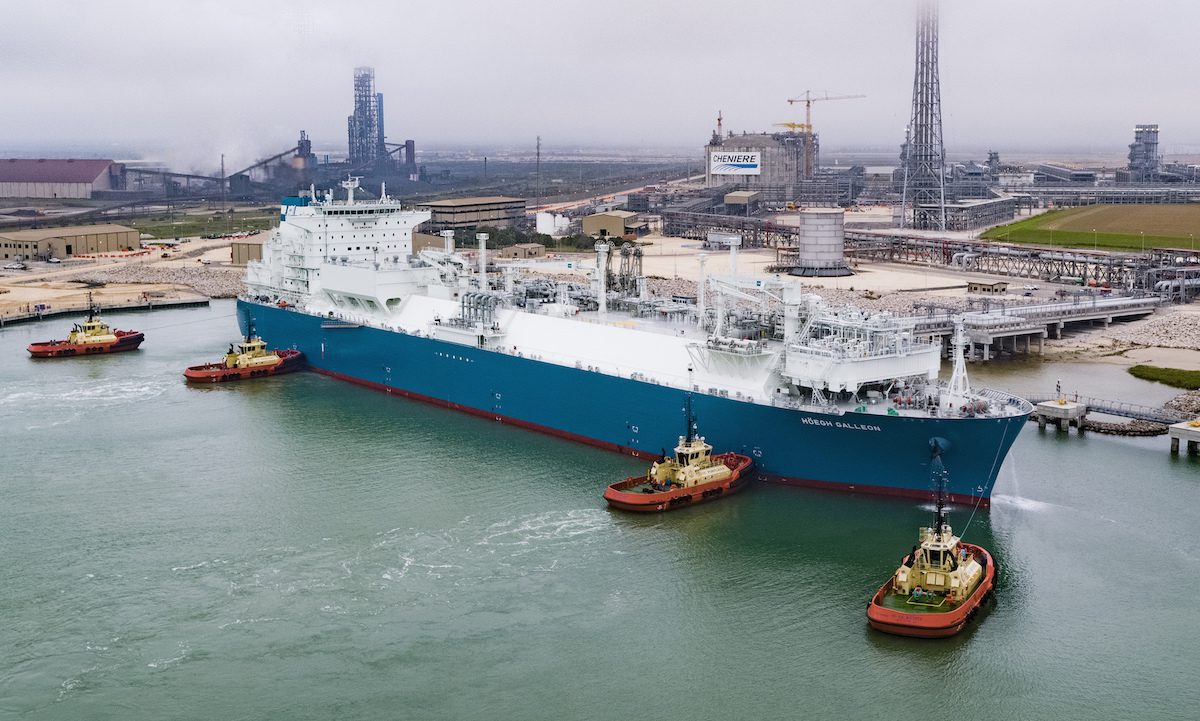The fire onboard the car carrier Fremantle Highway with the tragic loss of a seafarer has brought the debate surrounding the transport of electric vehicles (EVs) by sea into sharp focus.
The Fremantle Highway, a pure car and truck carrier (PCTC) chartered by “K” Line, caught fire off the coast of the Netherlands last month while transporting some 3,800 new cars, including nearly 500 were EVs. While the cause of the fire is under investigation, there is speculation that it may have started from an EV battery.
While ship fires are a real concern for marine insurers and the shipping industry as a whole, there has never been a fire onboard a roll-on/roll-off vessel or PCTC that has been proven to have been caused by a factory-new EV, according to The International Union of Marine Insurance (IUMI).
“IUMI understands that the transportation of EVs raises certain risks that are different to those involved in carrying internal combustion engine vehicles (ICEVs) but research suggests that the risks are not heightened or more dangerous,” the IUMI says.
IUMI has long advocated for better fire detection and extinguishing systems which must be specifically tailored for different vessel types.
“Focus must be on identifying risks and safety measures related to new energy vehicles such as EVs, how to mitigate these, and on engaging with class and regulators to develop necessary rules, standards and guidelines to ensure their safe transportation,” the IUMI states. “Work to this end is already on the agenda of the IMO’s Sub-Committee on Ship Systems and Equipment.”
Research by the EU Project LASHFIRE, with participation from the IUMI, shows that neither the growth rate of a fire nor the peak heat release rate or the total energy released during a fire is higher for an EV fire than for an internal combustion engine vehicle, or ICEV, fire. “The toxins released during an EV fire are similar as well,” IUMI says. “It is also important to remember that the battery itself is only a minor source of the fire load while the majority of the fire energy comes from plastics and other materials that are found equally in EVs and ICEVs.”
However, IUMI notes that exposing lithium-ion batteries to fire may result in thermal runaway, where the lithium-ion cell enters a self-heating, reigniting state, requires different fire detection and response.
“Immediate deployment of fixed fire-fighting systems is the most effective action against vehicle fires regardless of their energy source. In case thermal runaway occurs in an EV, boundary cooling is essential to prevent the fire from spreading. This allows the battery to burn down in a controlled manner,” IUMI says.
So while research shows that EV fires are not more common or more intense than ICEV fires, the IUMI says the maritime industry must continue to study and adapt to new risks.
“Traditional fuels such as petrol and diesel are potentially extremely dangerous but we, as a maritime industry, have learnt to understand and mitigate the associated risks,” the IUMI states. “Lithium-ion batteries are still relatively new but have already become a major part of everyday life. The maritime industry is still learning and needs to adapt to these new sets of risks and mitigate them accordingly. Scientific evidence is essential to develop effective risk mitigation strategies.”

 Join The Club
Join The Club











